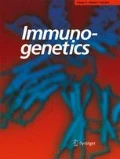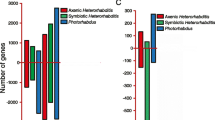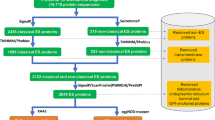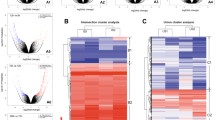Abstract
The common fruit fly Drosophila melanogaster is a powerful model for studying signaling pathway regulation. Conserved signaling pathways underlying physiological processes signify evolutionary relationship between organisms and the nature of the mechanisms they control. This study explores the cross-talk between the well-characterized nuclear factor kappa B (NF-κB) innate immune signaling pathways and transforming growth factor beta (TGF-β) signaling pathway in response to parasitic nematode infection in Drosophila. To understand the link between signaling pathways, we followed on our previous studies by performing a transcript-level analysis of different TGF-β signaling components following infection of immune-compromised Drosophila adult flies with the nematode parasites Heterorhabditis gerrardi and H. bacteriophora. Our findings demonstrate the requirement of NF-κB transcription factors for activation of TGF-β signaling pathway in Drosophila in the context of parasitic nematode infection. We observe significant decrease in transcript level of glass bottom boat (gbb) and screw (scw), components of the bone morphogenic protein (BMP) branch, as well as Activinβ (actβ) which is a component of the Activin branch of the TGF-β signaling pathway. These results are observed only in H. gerrardi nematode-infected flies compared to uninfected control. Also, this significant decrease in transcript level is found only for extracellular ligands. Future research examining the mechanisms regulating the interaction of these signaling pathways could provide further insight into Drosophila anti-nematode immune function against infection with potent parasitic nematodes.




Similar content being viewed by others
References
Agaisse H, Perrimon N, Agaisse H, Perrimon N (2004) The roles of JAK/STAT signaling in Drosophila immune responses. Immunol Rev 198:72–82. https://doi.org/10.1111/j.0105-2896.2004.0133.x
Arefin B, Kucerova L, Dobes P, Markus R, Strnad H, Wang Z, Hyrsl P, Zurovec M, Theopold U (2014) Genome-wide transcriptional analysis of Drosophila larvae infected by entomopathogenic nematodes shows involvement of complement, recognition and extracellular matrix proteins. J. Innate Immun. 6:192–204. https://doi.org/10.1159/000353734
Arefin B, Kucerova L, Krautz R, Kranenburg H, Parvin F, Theopold U (2015) Apoptosis in hemocytes induces a shift in effector mechanisms in the Drosophila immune system and leads to a pro-inflammatory state. PLoS One 10:e0136593. https://doi.org/10.1371/journal.pone.0136593
Buchon N, Silverman N, Cherry S (2014) Immunity in Drosophila melanogaster - from microbial recognition to whole-organism physiology. Nat Rev Immunol 14:796–810. https://doi.org/10.1038/nri3763
Castillo JC, Shokal U, Eleftherianos I (2013) Immune gene transcription in Drosophila adult flies infected by entomopathogenic nematodes and their mutualistic bacteria. J Insect Physiol 59:179–185. https://doi.org/10.1016/j.jinsphys.2012.08.003
Castillo JC, Shokal U, Eleftherianos I (2012) A novel method for infecting Drosophila adult flies with insect pathogenic nematodes. Virulence 3:339–347. https://doi.org/10.4161/viru.20244
Ciche T (2007) The biology and genome of Heterorhabditis bacteriophora. WormBook 1(9). https://doi.org/10.1895/wormbook.1.135.1
Clark RI, Woodcock KJ, Geissmann F, Trouillet C, Dionne MS (2011) Multiple TGF-β superfamily signals modulate the adult Drosophila immune response. Curr Biol 21:1672–1677. https://doi.org/10.1016/j.cub.2011.08.048
Corbo JC, Levine M (1996) Characterization of an immunodeficiency mutant in Drosophila. Mech Dev 55:211–220. https://doi.org/10.1016/0925-4773(96)00506-0
Dillman AR, Chaston JM, Adams BJ, Ciche T a, Goodrich-Blair H, Stock SP, Sternberg PW (2012) An entomopathogenic nematode by any other name. PLoS Pathog 8:8–11. https://doi.org/10.1371/journal.ppat.1002527
Dobes P, Wang Z, Markus R, Theopold U, Hyrs P (2012) An improved method for nematode infection assays in Drosophila larvae. Fly (Austin) 6:75–79. https://doi.org/10.4161/fly.19553
Eleftherianos I, Castillo JCJC, Patrnogic J (2016) TGF-β signaling regulates resistance to parasitic nematode infection in Drosophila melanogaster. Immunobiology 221:1362–1368. https://doi.org/10.1016/j.imbio.2016.07.011
Fellous S, Lazzaro BP (2010) Larval food quality affects adult (but not larval) immune gene expression independent of effects on general condition. Mol Ecol 19:1462–1468. https://doi.org/10.1111/j.1365-294X.2010.04567.x
Ganesan, S, Aggarwal, K, Paquette, N, Silverman, N, 2011. NF-κB/Rel proteins and the humoral immune responses of Drosophila melanogaster. 25–60. https://doi.org/10.1007/82_2010_107
Gesualdi SC, Haerry TE (2007) Distinct signaling of Drosophila Activin/TGF- β family members. Fly (Austin). 1:212–221. https://doi.org/10.4161/fly.5116
Hallem E a, Rengarajan M, Ciche TA, Sternberg PW (2007) Nematodes, bacteria, and flies: a tripartite model for nematode parasitism. Curr Biol 17:898–904. https://doi.org/10.1016/j.cub.2007.04.027
Hedengren, M, Bengt, A, Dushay, MS, Ando, I, Ekengren, S, Wihlborg, M, Hultmark, D, 1999. Relish, a central factor in the control of humoral but not cellular immunity in Drosophila 4, 827–837
Hyrsl P, Dobes P, Wang Z, Hauling T, Wilhelmsson C, Theopold U (2011) Clotting factors and eicosanoids protect against nematode infections. J. Innate Immun. 3:65–70. https://doi.org/10.1159/000320634
Johnston CJC, Smyth DJ, Dresser DW, Maizels RM (2015) TGF-β in tolerance, development and regulation of immunity. Cell Immunol 299:14–22. https://doi.org/10.1016/j.cellimm.2015.10.006
Kimbrell D a, Beutler B (2001) The evolution and genetics of innate immunity. Nat Rev Genet 2:256–267. https://doi.org/10.1038/35066006
Kleino A, Silverman N (2014) The Drosophila IMD pathway in the activation of the humoral immune response. Dev Comp Immunol 42:25–35. https://doi.org/10.1016/j.dci.2013.05.014
Kucerova L, Broz V, Arefin B, Maaroufi HO, Hurychova J, Strnad H, Zurovec M, Theopold U (2016) The Drosophila chitinase-like protein IDGF3 is involved in protection against nematodes and in wound healing. J Innate Immun 8:199–210. https://doi.org/10.1159/000442351
Lemaitre B, Hoffmann J (2007) The host defense of Drosophila melanogaster. Annu Rev Immunol 25:697–743. https://doi.org/10.1146/annurev.immunol.25.022106.141615
Lemaitre B, Kromer-Metzger E, Michaut L, Nicolas E, Meister M, Georgel P, Reichhart JM, Hoffmann J a (1995) A recessive mutation, immune deficiency (imd), defines two distinct control pathways in the Drosophila host defense. Proc Natl Acad Sci U S A 92:9465–9469. https://doi.org/10.1073/pnas.92.21.9465
Li MO, Wan YY, Sanjabi S, Robertson A-KL, Flavell RA (2006) Transforming growth factor- β regulation of immune responses. Annu Rev Immunol 24:99–146. https://doi.org/10.1146/annurev.immunol.24.021605.090737
Meng X, Khanuja BS, Ip YT (1999) Toll receptor-mediated Drosophila immune response requires Dif, an NF- kB factor. Genes Dev 13:792–797. https://doi.org/10.1101/gad.13.7.792
Myllymäki H, Rämet M (2014) JAK/STAT pathway in Drosophila immunity. Scand J Immunol 79:377–385. https://doi.org/10.1111/sji.12170
Patrnogic J, Heryanto C, Eleftherianos I (2018a) Wounding-induced upregulation of the bone morphogenic protein signaling pathway in Drosophila promotes survival against parasitic nematode infection. Gene 673:112–118. https://doi.org/10.1016/j.gene.2018.06.052
Patrnogic J, Heryanto C, Eleftherianos I (2018b) Transcriptional up-regulation of the TGF-β intracellular signaling transducer Mad of Drosophila larvae in response to parasitic nematode infection. Innate Immun 175342591879066:349–356. https://doi.org/10.1177/1753425918790663
Peña JM, Carrillo Ma, Hallem Ea (2015) Variation in the susceptibility of Drosophila to different entomopathogenic nematodes. Infect Immun:83. https://doi.org/10.1128/IAI.02740-14
Peterson AJ, O’Connor MB (2014) Strategies for exploring TGF-β signaling in Drosophila. Methods 68:183–193. https://doi.org/10.1016/j.ymeth.2014.03.016
Raftery L a, Sutherland DJ (1999) TGF-β family signal transduction in Drosophila development: from Mad to Smads. Dev Biol 210:251–268. https://doi.org/10.1006/dbio.1999.9282
Rämet M, Lanot R, Zachary D, Manfruelli P (2002) JNK signaling pathway is required for efficient wound healing in Drosophila. Dev Biol 241:145–156. https://doi.org/10.1006/dbio.2001.0502
Rutschmann, S, Jung, a. C., Hetru, C., Reichhart, JM, Hoffmann, J. a, Ferrandon, D., 2000. The Rel protein DIF mediates the antifungal but not the antibacterial host defense in Drosophila. Immunity 12, 569–580. https://doi.org/10.1016/S1074-7613(00)80208-3
Rutschmann S, Kilinc A, Ferrandon D (2002) Cutting edge: the toll pathway is required for resistance to gram-positive bacterial infections in Drosophila. J Immunol 168:1542–1546. https://doi.org/10.4049/jimmunol.168.4.1542
Shi Y, Massagué J (2003) Mechanisms of TGF- β signaling from cell membrane to the nucleus. Cell 113:685–700. https://doi.org/10.1016/S0092-8674(03)00432-X
Song W, Owusu-Ansah E, Hu Y, Cheng D, Ni X, Zirin J, Perrimon N (2017) Activin signaling mediates muscle-to-adipose communication in a mitochondria dysfunction-associated obesity model. Proc Natl Acad Sci 114:8596–8601. https://doi.org/10.1073/pnas.1708037114
Tauszig S, Jouanguy E, Hoffmann J a, Imler JL (2000) Toll-related receptors and the control of antimicrobial peptide expression in Drosophila. Proc Natl Acad Sci U S A 97:10520–10525. https://doi.org/10.1073/pnas.180130797
Valanne S, Wang J-H, Rämet M (2011) The Drosophila toll signaling pathway. J Immunol 186:649–656. https://doi.org/10.4049/jimmunol.1002302
Wan, YY, Flavell, RA, 2008. TGF-β and regulatory T cell in immunity and autoimmunity 28, 647–659. https://doi.org/10.1007/s10875-008-9251-y
Waterfield NR, Ciche T, Clarke D (2009) Photorhabdus and a host of hosts. Annu Rev Microbiol 63:557–574. https://doi.org/10.1146/annurev.micro.091208.073507
White GF (1927) A method for obtaining infective nematode larvae from cultures. Science 66:302–303. https://doi.org/10.1089/dna.1998.17.321
Zi Z, Chapnick DA, Liu X (2012) Dynamics of TGF-β/Smad signaling. FEBS Lett 586:1921–1928. https://doi.org/10.1016/j.febslet.2012.03.063
Acknowledgements
We thank Kyle Devine for maintaining the Drosophila stocks and members of the Department of Biological Sciences at GWU for critical reading of the manuscript. We thank Dr. Jean-Marc Reichhart (National Center for Scientific Research, Strasbourg, France) and Dr. Louisa Wu (University of Maryland, College Park, USA) for providing us with fly immune mutant lines.
Funding
This work was funded by the National Institute of Allergy and Infectious Diseases (grant 1R01AI110675–01A1 and 1R56AI110675-01).
Author information
Authors and Affiliations
Corresponding author
Ethics declarations
Conflict of interest
The authors declare that they have no conflict of interest.
Additional information
Publisher’s note
Springer Nature remains neutral with regard to jurisdictional claims in published maps and institutional affiliations.
Electronic supplementary material
ESM 1
(DOCX 211 kb)
Rights and permissions
About this article
Cite this article
Patrnogic, J., Heryanto, C., Ozakman, Y. et al. Transcript analysis reveals the involvement of NF-κB transcription factors for the activation of TGF-β signaling in nematode-infected Drosophila. Immunogenetics 71, 501–510 (2019). https://doi.org/10.1007/s00251-019-01119-8
Received:
Accepted:
Published:
Issue Date:
DOI: https://doi.org/10.1007/s00251-019-01119-8




